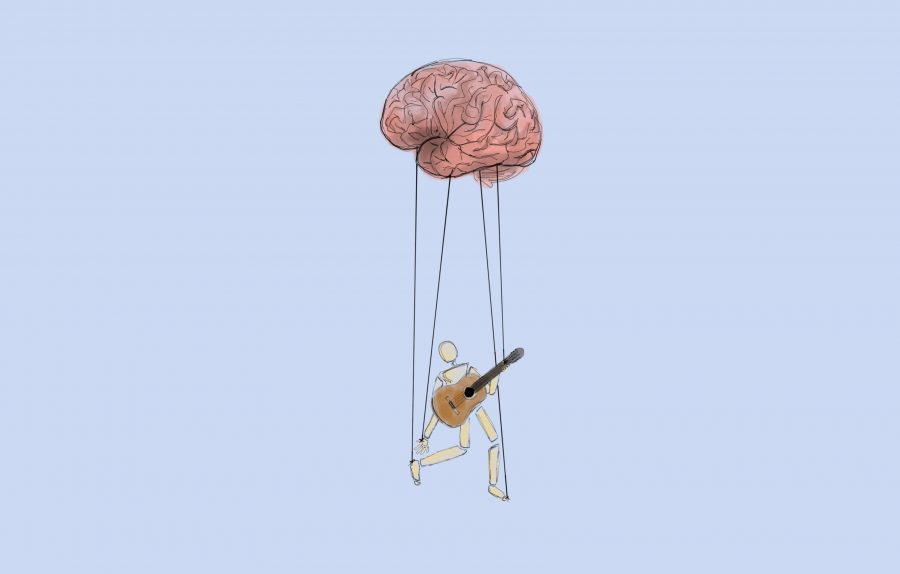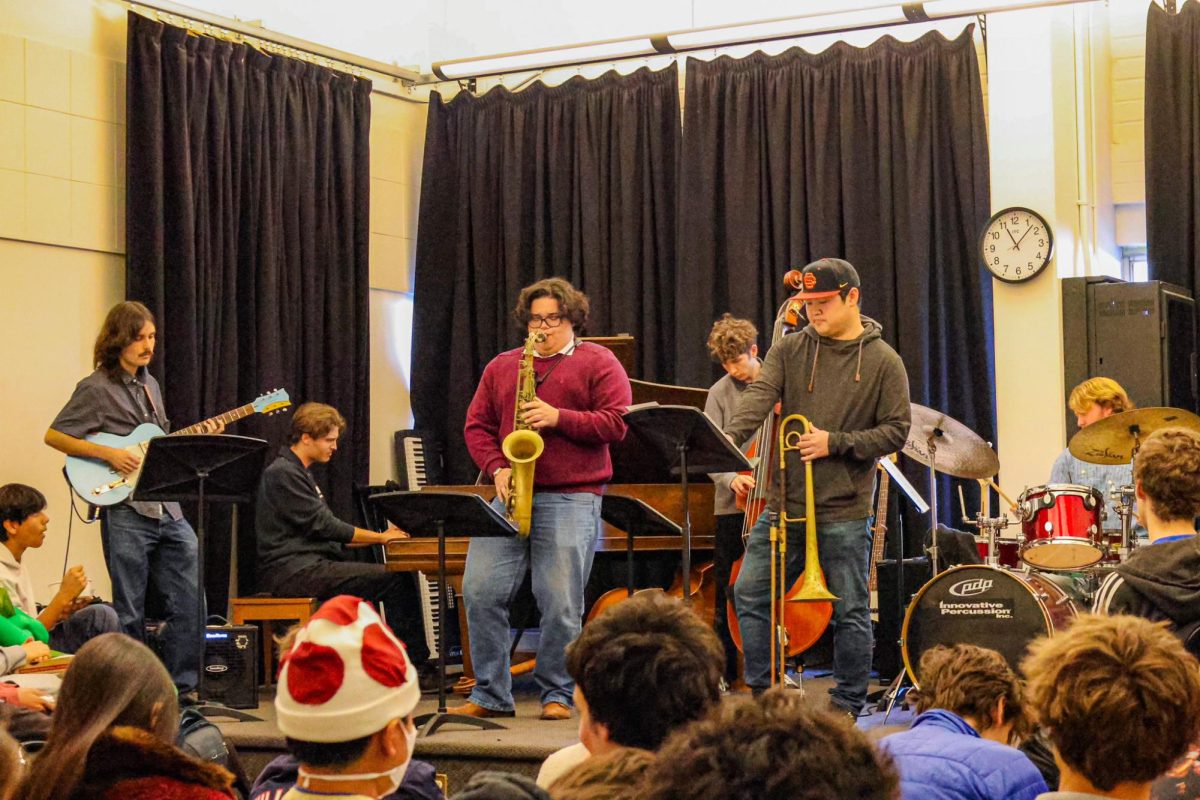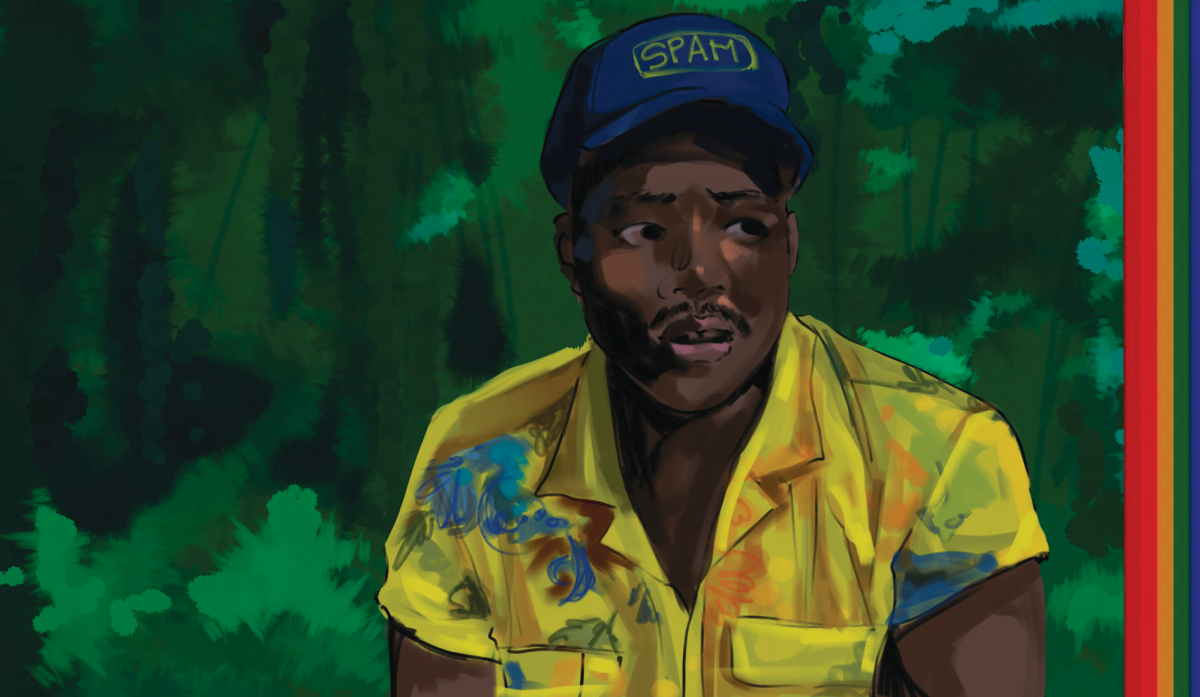In her backyard, with headphones in, Caroline Cook ’19 choreographed a piece with the intention of someday sharing it. Months later, standing alone in a corner of the studio, she prepared for the overwhelming experience of sharing what was meant to be shared.
With hundreds of eyes upon her on the momentous day, she allowed the music to overtake her body. In the Harry Potter-themed 2018 Dance Concert, Cook choreographed and performed a solo as Harry in the Mirror of Erised moment, in which Harry longs for his parents. Also a committed participant in the theater program and Playwrights festival, Cook said she feels that as a performer, she is more connected to her character when an audience is present.
“In front of an audience, my movements and my facial expressions tend to be a lot bigger than when it’s just in rehearsals or when I’m practicing by myself because I know that I need to do more to be able to communicate what I’m trying to communicate,” Cook said. “My energy is catalyzed by just the sheer fact that there are people watching.”
Social Psychology teacher Seth Wagerman said social facilitation, commonly known as the audience effect, is the phenomenon that a performer executing a simple or well-practiced task will excel in the presence of an audience. However, if performing a complex task, while feeling insecure, their execution will be impaired. For example, a professional musician might feed off of the audience’s energy, whereas a middle school piano student might forget their piece as soon as they step on stage.
“This really showcases the importance of preparation,” Wagerman said. “If you go into a big exam or a big performance feeling really practiced and confident, you’re going to do fantastic with the people around, way better than all your practice sessions alone. But if you try to wing it and feel underprepared, the social facilitation effect might actually make things worse in front of the audience. That pressure either really galvanizes you or rattles you, depending on the task you’re performing.”
For choir, jazz and a capella singer Alec Davila ’20, a big part of performing is taking into account what he senses from the audience. In other words, he makes in-the-moment decisions to tailor his performance to his audience. However, regardless of the audience, Davila said he thinks his performance is always better in the presence of people because it is easier to engage and go full out.
“When I was in fourth grade, I was singing ‘Grenade’ by Bruno Mars in my elementary school talent show, and mid-way through the song, one of my strings broke on my guitar,” Davila said. “I just kind of put the guitar down and everyone started cheering. It made the whole performance so much easier when I knew they were still enjoying it. I definitely was living off of that energy for a while after that.”
Some might expect that a poor performance could be a result of nerves rather than being unrehearsed. However, in Davila’s opinion, if he doesn’t feel nervous, the performance doesn’t matter to him. His nerves make the performance feel more important, pushing him to work harder, he said.
Similarly, Cook said she gets most nervous the moment before she steps on stage. The minute she starts performing, however, it goes away because she completely assumes the character she plays. In contrast, when she’s alone, there are no nerves.
“Nobody is watching; there’s no judgement being put on me; I can mess up as much as I want to, and no one will ever know,” Cook said. “Once you’re in front of an audience, of course there are nerves right before because you want it to be the thing that you constitute as perfect in your head. You want that to be what appears on stage.”
Social facilitation explains that in order to beat stage fright, one should be as well-practiced in the task as possible.
“As the scouts have always said, be prepared!” Wagerman said in an email.









































